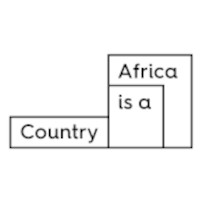Libyan writer Ibrahim Al-Koni’s latest novel is a philosophical retelling of the story of Amazigh queen Al-Kahina.
Image credit @abdallahh via Flickr CC BY-NC-ND 2.0.
The story of the seventh-century warrior queen, the Amazigh ruler known as Al-Kahina, or “The Diviner,” has been used, over the years, to undergird stories glorifying early Muslims, settler colonialists, and anti-imperial uprisings. The figure of Al-Kahina has appeared in world-building narratives by authors as diverse as the 14th-century historian and philosopher Ibn Khaldun, French colonial apologist Ernest Mercier, and Algerian novelist and playwright Kateb Yacine. Believed to have been an Amazigh Jewish leader who opposed early Muslim generals, her story has been put in the service of Muslim, French, Israeli, and Amazigh nationalisms. She has alternately been portrayed as a thoughtless city-destroyer, a “Jewish Khaleesi,” and a feminist resistance fighter.
In The Night Will Have Its Say, celebrated Libyan novelist Ibrahim al-Koni relays the same story told by Ibn Khaldun in his 14th-century Tarikh, his multi-volume opus on history. Yet the novel, now in a lucid and precise translation by Nancy Roberts, broadens the scope of the story, which follows both Al-Kahina’s people and the invading Umayyads. Al-Koni—both a member of the Tuareg community and a Sufi Muslim—thus changes the binary. What has been used to tell a story about choosing sides now becomes a story that elevates diversity: in language, religion, and culture.
The basic story is this: a long-lived Amazigh ruler, called Al-Kahina because of her famed prophetic abilities, controlled a territory that centered on the Aures mountains in what’s now eastern Algeria and western Tunisia. Around 700 CE, her forces defeated Hassan ibn al-Nu’man, who had been sent by the Umayyad caliph to wage a holy war in Africa. After this win, Al-Kahina made the surprising move of adopting one of her key prisoners of war, bringing the foreigner into her family. She continued to govern this part of North Africa while Hassan ibn al-Nu’man waited an impatient five years for assistance to come from his caliph. As he waited, al-Kahina ordered the destruction of several of her own cities, as well as the melting down of gold and silver, which cost her crucial support. In the end, with defeat on the horizon, she sent her own sons to join the invading forces of Hassan ibn al-Nu’man.
Most tellings of Al-Kahina’s story share these core facts. Some writers, like Ibn Khaldun, don’t tell us what came before Al-Kahina’s hostility toward the Muslim forces, which help us make sense of her scorched-earth policy. In al-Koni’s novel, we see the massacres, kidnappings, and humiliations of Amazigh people by early Muslim generals, including many attacks on Amazigh leaders who converted to Islam. From the opening pages of the novel, we see many reasons why Al-Kahina might have fiercely opposed the arriving Muslims.
We also see what happened after Al-Kahina’s defeat. One distraught father, for instance, is crushed by the new leaders’ “jizya” tax, which is levied even on African converts, in order to fill the Umayyads’ coffers. For those who can’t pay, their daughters are stolen. A group of these new Amazigh Muslims eventually travel to Damascus to make their plea for justice and recover their daughters. And while the caliph rules in their favor, al-Koni suggests that this turn toward human justice is only temporary. In this story, greed has fiercer allies than justice.
Al-Koni’s particular medieval-modern portraiture
We know little about Al-Kahina—the legendary historical figure—beyond the larger-than-life stories told about her great age and prophetic abilities. In The Night Will Have Its Say, al-Koni works to craft a more complicated version of Al-Kahina, making her neither a resistance hero nor an unlettered villain.
Yet his novel does not give us a real-feeling portrait of a woman who led people into battle 13 centuries ago. Instead, al-Koni keeps us at a distance from Al-Kahina, drawing a remote, larger-than-life character who is more allegory than reality. And while we get inside the heads of the main characters, these characters are archetypes rather than individualized, life-like figures. The father who has lost his daughters to the jizya tax gains our sympathy, but we don’t ever see him as an individual. Like many of al-Koni’s works, The Night Will Have Its Say is closer kin to medieval Arabic philosophical fictions than to contemporary, character-driven novels. Here, the characters are secondary to the philosophical questions al-Koni is interrogating: about coexistence, diversity, and the possibilities of human justice.
And while the novel’s narrator is clearly telling the story from long after the events of 700-723 CE, he cites medieval historians, including Ibn Idhari, Ibn Qutayba, and Al-Isfanani, as though this were not a historical fiction, but instead a very late medieval history.
This is one reason why Al-Koni, who has written dozens of allegorical works about Libya’s Tuareg communities and is a major figure in Arabic literature, remains at the margins of “world” literature. At least 10 of his books have been translated to English, and he was shortlisted for the Man Booker International, back when it was a prize for a writer’s oeuvre. He also won the US-based National Translation Award for the mythological The New Waw, translated by William Hutchins. Yet for those who read him casually, his style can hit strangely. You can’t come to an al-Koni novel expecting the development of individual characters to be of central importance.
Al-Kahina’s religion: Sufi Judaism
Across most renderings of Al-Kahina, her religious identity is of central importance. Al-Koni doesn’t refer to her as Jewish. Instead, she embraces a religion with a lost scripture—presumably a Judaism that has lost its connection with the printed Torah. But she isn’t attached to the particularities of her religion, and nor is she opposed to Islam. Instead, she transcends religion, telling emissaries from the Umayyad caliph that she believes it’s unnecessary to convert to Islam because all religions are essentially the same.
Thus, while she opposes the invaders—and this opposition makes sense in light of their later oppression of her people—it is because of their human frailty and greed, not because they are Muslim. Further, al-Koni’s version of Al-Kahina never wants to triumph over the invaders or send them packing. Instead, she wants to find a way to thrive alongside these newcomers. What is most important to her—and indeed, to the novel—is living together in space where people are allowed to speak their own languages and practice their own religions.
But while this version of Al-Kahina is a vessel for interesting thought experiments, a reader of The Night Will Have Its Say should not approach the book expecting to have an emotional entanglement with this character. The characters here are not meant to be either round or flat; those binaries make no sense in al-Koni’s world. Instead, they are meant to take us on a journey through ideas, which they do.






